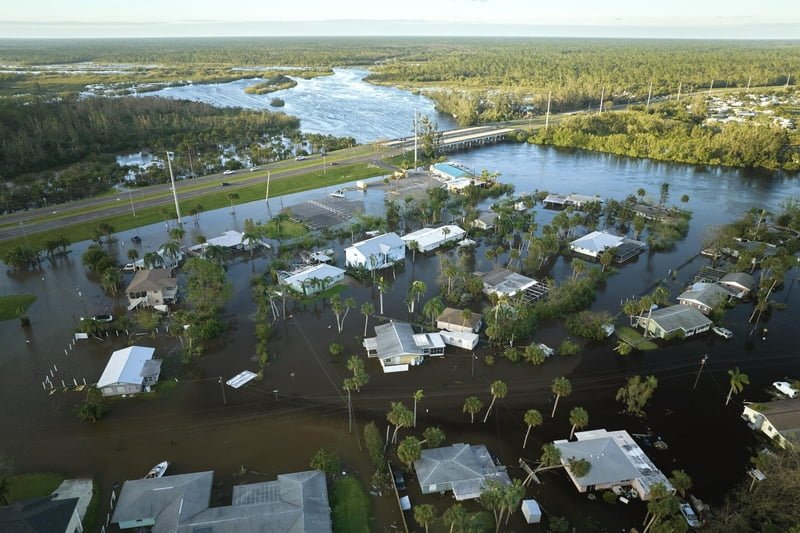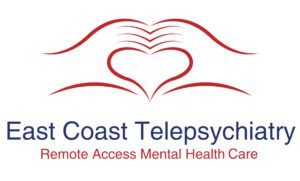Hurricane Ian had a devastating impact on people’s lives. The images of destruction are heartbreaking. Destroyed homes, displaced families, and many people lack basic human necessities like food, water, and shelter. What is the impact of a major storm like Hurricane Ian on mental health?
The devastation caused is so immense it is hard to fathom how anyone in the path could recover from such devastation. Mental health experts are concerned about how this trauma may affect those with existing mental health conditions or who may develop new ones due to their experience during the storm.

Hurricane Ian and the impact of a major storm on mental health will be felt for years.
What are Hurricane Ian’s Effects on Mental Health?
The effects on mental health can be different for everyone. However, some people experience common issues after a major disaster. They may feel shocked and numb when they first learn about a natural disaster or its loss once they realize what has happened to someone close to them. They also may feel guilty for surviving while others did not or for being angry when they do not have time to grieve properly.
Many also experience anxiety and depression following disasters because they do not know what tomorrow will bring, if they can rebuild their homes or if their loved ones will return safely from evacuation areas. They must focus on survival needs such as food, water, and shelter.
Existing Mental Health Conditions and Hurricanes
According to the National Institute of Mental Health, hurricanes can worsen the conditions of those with existing mental issues and, in rare cases, trigger new illnesses. The symptoms of depression, anxiety, and post-traumatic stress disorder (PTSD) increase during a storm’s aftermath. It is due to how people deal with the loss of their homes, property damage, community, or experienced physical injuries.
When Hurricane Ian made landfall in Florida, it brought torrential rains and winds up to 155 miles per hour. The storm caused catastrophic flooding and left more than 1 million people without power.
As a result, many residents are now dealing with mental health issues — from post-traumatic stress disorder (PTSD) to depression — as they try to rebuild their lives.
“The depression that comes from losing everything is not something that you can just snap out of,” said Elaine Cohen, who lives in Fort Meyers, Florida. “It’s tough for me to function sometimes.”
Cohen, who has lived in her home for more than 25 years, says she lost everything in the hurricane’s aftermath and has been living at a shelter since then. She says she hasn’t been able to return to her home because it’s still flooded and moldy inside. “I’m going crazy,” she stated. “I have PTSD.”

Hurricane Ian and the impact of a major storm on mental health can be alleviated by cognitive behavioral therapy.
Weather and its Toll on Mental Health
Hurricanes often cause extensive damage to homes and buildings, homes, emergency shelters, and public spaces. Many people are separated from loved ones, while others lose all of their belongings. These experiences can be traumatic and cause mental health conditions.
Hurricanes can also trigger thoughts of suicide in those already at risk for self-harm. According to the National Institute of Health, suicide rates increased in the four years after floods, hurricanes, and earthquakes by 13.8 percent, 31.0 percent, and 62.9 percent respectively.
In addition to short-term effects on mental health, long-term effects can be significant too. A study of Hurricane Maria survivors published in The Journal of the American Medical Association found that they were still experiencing elevated levels of depression compared with people who had never been through such an event.
Power outages can lead to an increased risk of heat-related illnesses and death among people with co-occurring mental health and substance use disorders. People with psychiatric conditions may be more vulnerable to the adverse effects of heat due to dehydration, lack of air conditioning, and other environmental issues.
Studies of victims of natural disasters have found physical and mental health declines among those who lost their homes or had to relocate long distances. The apparent threat to a person’s mental health posed by a major disaster is the traumatic stress caused by fear, chaos, and death. However, persistent effects can also arise from disruptions in basic needs such as food, water, and shelter that result from disasters.
Direct and Indirect Impacts
Direct impacts of a disaster include experiencing physical injuries (e.g., burns, cuts) and experiencing emotional distress (e.g., anxiety, depression). It also includes having limited access to food or water, causing dehydration or malnutrition and separation from loved ones, leading to feelings of isolation or abandonment.
Indirect impacts include financial losses resulting from property damage or loss of income due to job loss after a disaster (e.g., there may be no place for children in school).
Children’s Mental Health After a Major Storm
Storms, especially series of storms with high winds or flooding, can cause children and youth to experience emotional difficulties. Common emotional reactions include insecurity, feeling sad, or depression. They also have difficulty sleeping, irritability, aggressive behavior, accidents in school, and do not listen to adults.
The mental health impacts of a storm can be profound and enduring over time, particularly in vulnerable populations. Exposure to traumatic events during childhood can significantly affect physical, behavioral, academic, and cognitive functioning. Children living through disasters may exhibit signs of distress, including feelings of insecurity and helplessness. For children and youth, needs will likely peak between 12-18 months after the event and slowly reduce after 24 months, depending on the severity.
The emotional trauma children experience includes fear for the safety of loved ones and the uncertainty about how long it will take before they can return home. It can cause them emotional stress and confusion, affecting their overall well-being in multiple ways. Some children may also feel guilty for surviving when others did not; this guilt may persist for years after an event has passed. In addition, conflicts between parents over what happened during these events can lead to more behavior problems at home and school.
School Roles After Hurricane Ian
In the wake of a disaster, schools can play a critical role in providing emotional support for students and helping them to cope with their concerns. Having an opportunity to share information and resources on best practices can strengthen resilience and better prepare staff to help youth respond to disasters. Student mental health professionals will be called upon to help with this process but would benefit from having connections within the school, region, or even across states.
The aftermath of Hurricane Ian and the impact of a major storm on mental health.
The aftermath of Hurricane Ian
Mental health needs will rise in the aftermath of Hurricane Ian. Many children and adolescents will experience trauma and watch as their schools and neighborhoods recover. In the absence of coordinated support and targeted mental health interventions, we will likely see a rise in anxiety, depression, feelings of fear/panic/unpredictability, and post-traumatic stress disorder (PTSD) within the first 2-3 months.
The impact of disasters on mental health is diverse and complex. The effects of disasters on mental health are not always predictable or immediate. People may be affected differently depending on their age, gender, race or ethnicity, previous history of trauma exposure, life stressors and vulnerabilities, access to resources and social support networks before the disaster, and experiences during and after the event itself.

East Coast Telepsychiatry Will Help You Get Through the Storm
We understand that after a disaster, a good mental health assessment can give you peace of mind and help you regain balance in your life. We have experience working with individuals and families impacted by trauma and know how crucial it is to offer them recovery services as quickly as possible.
East Coast Telepsychiatry is here to help you. We have an experienced team that understands your needs and strives to help you achieve the best possible life. Schedule an appointment today or call us at (843) 299-2033.

